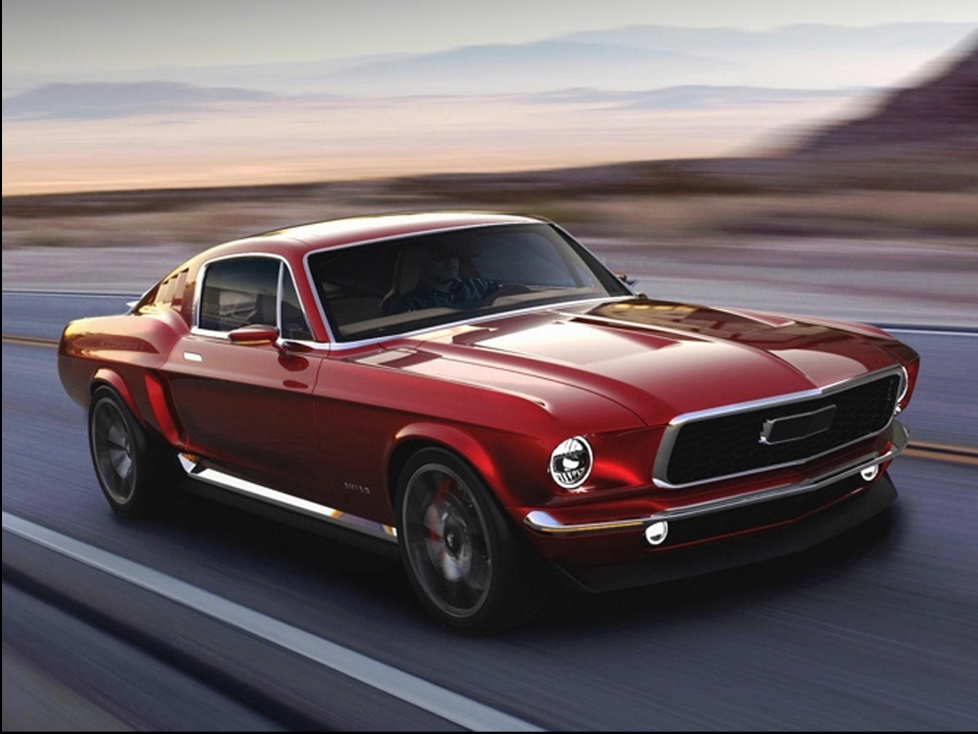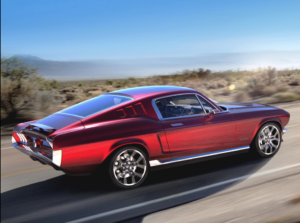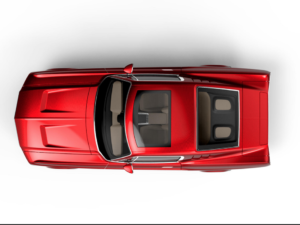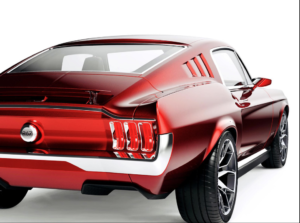Classic Mustang Clone Plays with Copyright Fire
Russian company tempts Ford’s patience with 840-horsepower electric 1967 Mustang rip-off.
Is there anything more classically American than a ’60s Ford Mustang? The original pony car. The egalitarian dream machine. Compared to Russian cars, well, you can’t really compare the Mustang to anything the Russians have ever built. Back in the ’60s, the best you could do behind the Iron Curtain was drive a dowdy copy of a ’50s Packard. At worst, you were waiting years for a badly-built econobox that likely made 40 horsepower.
But, it’s 2018, and we’re living in the strangest of timelines. And so two Russian companies are partnering to build an electric sports car heavily based on the 1967 Mustang fastback. According to CarBuzz, Russian engineering company KB Arkhipov and Moscow-based Aviar Motors are working together to develop the R67, a shiny, 840 horsepower copyright infringement lawsuit waiting to happen.
So familiar, yet so different
Still in the developmental stage, the R67 will have two electric motors, one front and rear. Together, they make 713 pound-feet of torque. The all-wheel drive car will travel 315 miles on a charge, make the zero-to-62 sprint in 2.2 seconds, and hit a top speed of 155 miles per hour. For performance that further lives up to its looks, the R67 will feature an adaptive air suspension, a carbon fiber frame and reinforcing elements, and an electronically controlled rear spoiler. Aggressive 20-inch forged aluminum wheels complete the look.
Inside, the Russkie Mustang looks like a mix between an S197 and a Tesla Model S. There’s the familiar dual-binnacle dash, three-spoke steering wheel, and heavily bolstered bucket seats. But there’s also a panoramic sunroof, a digital dashboard, and a massive touchscreen that looks like it came from Silicon Valley.
According to CarBuzz, there’s strong evidence that the R67 is a one-off, which means Aviar may avoid a legal action from the Blue Oval yet. With an estimated price of 400,000 Euros, it would be a tough sell should it go into production. But considering that Russia doesn’t make anything close to this (that we know of, at least), all this research and development for one car seems a bit far-fetched. We certainly don’t hate it, and if Ford gave its approval, we’d be entirely on board. But for now, it’s just more evidence that these are strange times indeed.





